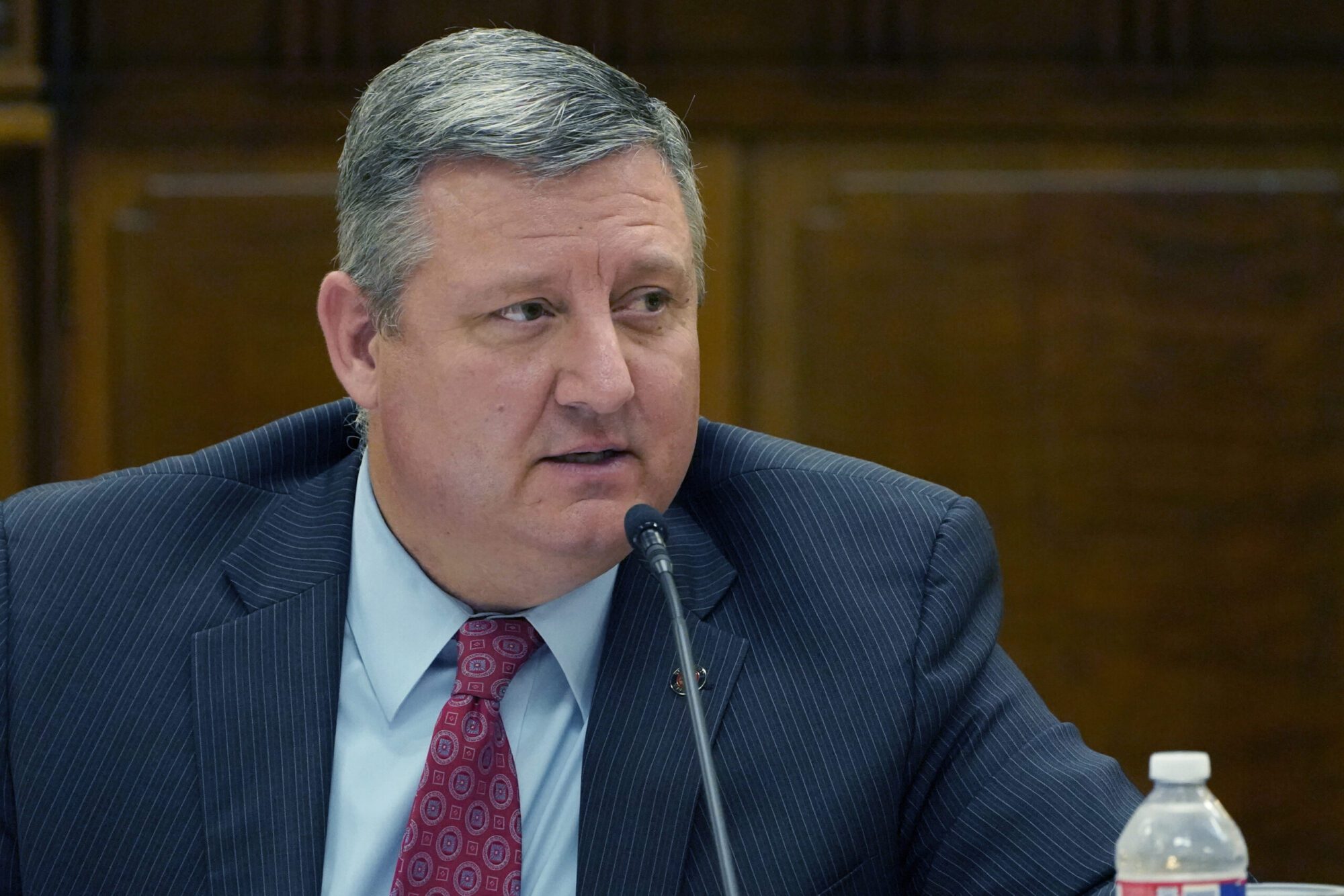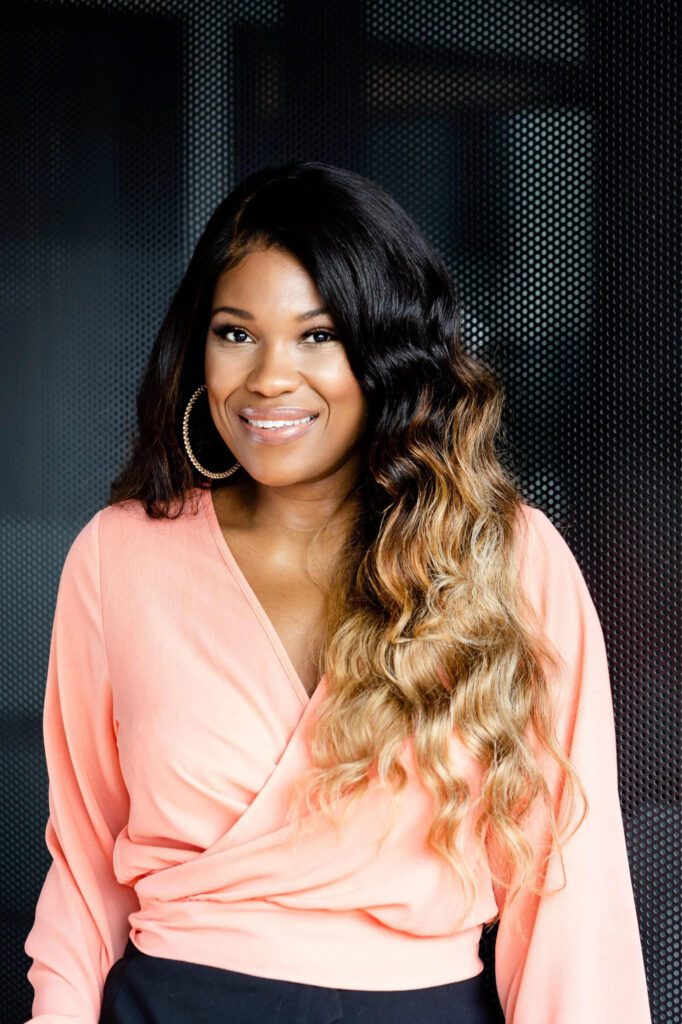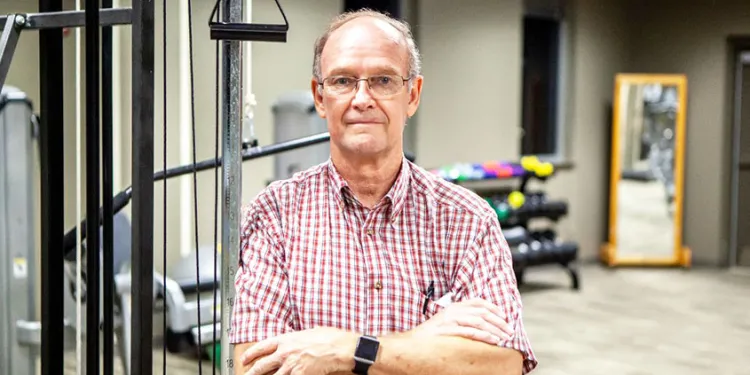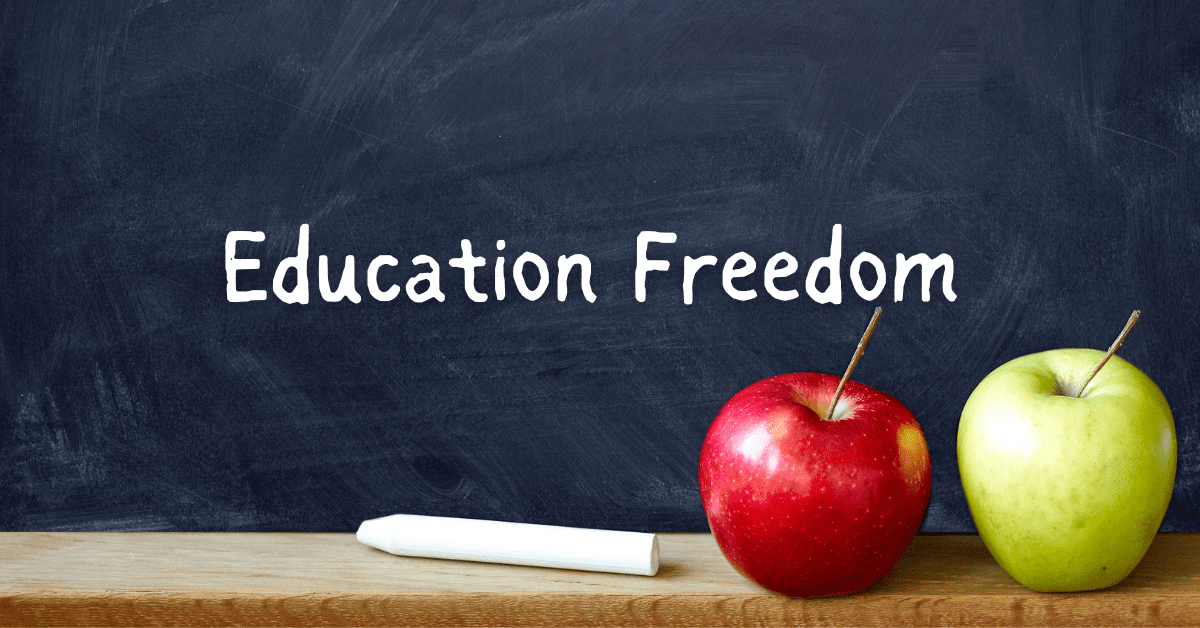
Senate Education Committee chairman Dennis DeBar Jr., R-Leakesville, addresses committee members during a teacher pay hearing at the Capitol in Jackson, Miss., Wednesday, Sept. 15, 2021. (AP Photo/Rogelio V. Solis)
If the goal of our education investment is to prepare kids for life, we should invest directly in kids and allow decisions to be made by the people who know those kids best, their parents.
States across the U.S. are trusting parents with education decisions. Unfortunately, Mississippi leaders have resisted. That resistance manifested itself this past Sunday when the Mississippi Senate’s Education Committee tabled Gov. Tate Reeves’ (R) nominee to the State Board of Education, Carra Powell.
Powell, an African American single mom with children in Mississippi public schools, happens to also be an advocate for school choice. Her experience supporting public charter schools—she works for an organization that does so—was a major subject of discussion by the Committee before it voted not to advance the Governor’s nominee.

As a reminder, Republicans comprise a majority of the Senate Education Committee. It is chaired by a Republican, Senator Dennis Debar, who was appointed by a Republican, Lt. Governor Delbert Hosemann.
It was completely within the power of Republicans to advance Powell to a confirmation vote on the floor of the Senate. They chose not to do so, under the veil of a voice vote that did not require people to go on record.
It should be noted that Mississippi already has public charter schools, even if the bureaucracy charged with managing them has actively worked to prevent their growth. It further bears emphasizing that these are, in fact, public schools.
An ‘Education Freedom’ Revolution is Happening Outside Our Borders
In the last two years, the Magnolia State has sat back and watched as West Virginia, Arizona, Utah, Iowa, Arkansas, and as of today, Florida, have all implemented education freedom policies that give every family a choice in how and where their children are educated.
Georgia and Texas are on the verge of following suit with universal school choice programs. Others are considering it. And dozens of other states have implemented education freedom policies that fall short of universal choice, but which significantly expand options for families. There is an education revolution afoot.
Reforms in each of these states did not require covert activity. Leaders like Govs. Ron DeSantis (FL-R), Sarah Huckabee Sanders (AR-R), Kim Reynolds (IA-R), and Doug Ducey (AZ-R) proudly stood up and sided with parents. They publicly championed agendas that would allow money to follow the child. They recognized that public investment in education should be in students, not systems. And then they boldly made the case to voters, who overwhelmingly approved.
What’s certain is that self-avowed “conservatives” were not actively working to torpedo efforts to empower parents in these states. The time for half-measure and obfuscation is over. It’s time for leaders to publicly declare if they will stand with parents and for children, or for a status quo that has held many students back from finding success.
Good Policy, Good Politics
The logic behind education freedom is simple enough. They’re your kids. It should be your choice how they are educated. Every child has unique gifts, challenges, and needs. No one is better equipped to understand and respond to those needs than parents. No one-size-fits-all system can do the trick.
President Trump, to his credit, recognized the need to empower families to find the right educational setting for their students. He saw the potential of choice to help all children, but particularly those in disadvantaged settings.
The popularity of school choice has always been high among the public. The pandemic and concerns over social engineering in academic curricula have only served to heighten support. A nationwide poll conducted by Real Clear Opinion Research last year found 72 percent support in response to this question:
School choice gives parents the right to use the tax dollars designated for their child’s education to send their child to the public or private school which best serves their needs. Generally speaking, would you say you support or oppose the concept of school choice?
The 72 percent response in support was up 8 points from the same question asked in 2020. Among Republicans, support has risen to 82 percent, and among Democrats, to 68 percent.
Clearing the Hurdles
Despite strong public support, too often, organized defenders of the status quo have convinced leaders that there will be political consequences to rocking the boat. They have pitted public schools and public-school teachers against reform advocates. But support for choice is not opposition to public schools or educators.
There are phenomenal public schools and public-school teachers. I am the product of public schools. My wife is a product of public schools. My children are enrolled in Mississippi public schools. I have multiple family members who are teachers in Mississippi public schools.
We are public school proud. Choice simply recognizes that every child is different and that parents ultimately bear responsibility for ensuring their student has the best chance available to be successful. If the goal of our education investment is to prepare kids for life, we should invest directly in kids and allow decisions to be made by the people who know those kids best.
It’s time for bold leadership. It’s time to trust parents.
CORRECTION:
Senator Mike McClendon (R-DeSoto) reached out to Magnolia Tribune and requested a correction on this article. He expressed concern over the use of the photograph of Powell and her children featured in the first section above. He indicated that it was an older photograph and was calculated to sway the reading audience to be sympathetic to Powell.
(As a lighthearted aside, check out the legislative website for some headshots of elected officials before the turn of the Century).
The use of the Powell family photograph above was not in any way a calculated maneuver, but was simply the photograph that had been circulated in connection with Powell’s nomination by other leaders and organizations throughout the nomination process. That said, after doing some additional investigation, Sen. McClendon is right that it was an older photograph. It is not clear to me that newer photographs make the Senate’s decision to not confirm Powell better or worse. But out of an abundance of caution I reached out to Powell to obtain some newer photographs, which are included at the bottom.
Sen. McLendon also expressed concern that we not insinuate that he is liberal. Prior to his asking for a “correction” of the photograph, this article had made no mention of his name or allusion to his political ideology.
Sen. McClendon’s stated opposition to Powell was that he believed the Governor should have appointed a current employee of Mississippi public schools, referencing the DeSoto County School Systems 4,500 employees. However, Sen. McClendon’s preference was not possible under Mississippi law. Miss. Code Ann. § 37-1-1 governs the appointment of members to the State Board of Education. Under the statute, the Governor is limited to two appointments of current employees of public schools (an administrator and a teacher). Neither of those appointments were vacant. So his appointment had to be outside of current employees of Mississippi public schools.














